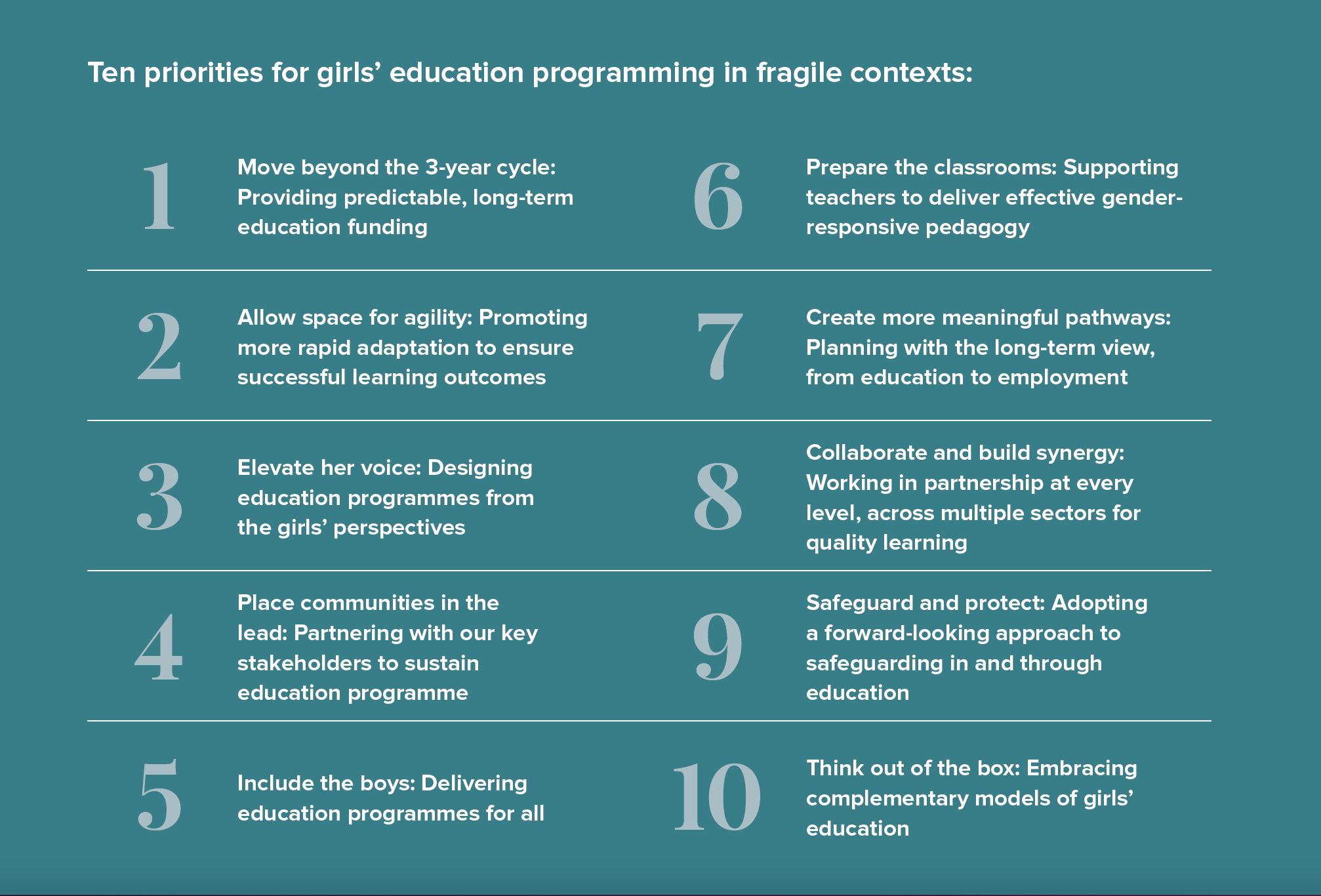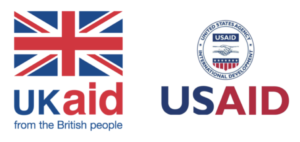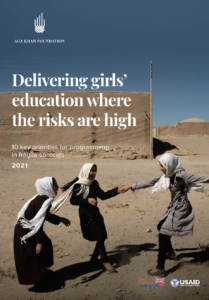At a time of increasing fragility and with less than a decade remaining to meet the Sustainable Development Goals (SDGs), we launch a new global report on one of the most pressing issues of our time: how to help girls learn better, live better, and thrive.
This new report collates successes and learnings shared by over 200 representatives from international non-governmental organisations (INGOs), local NGOs, researchers, funders, and policy makers who participated in Aga Khan Foundation’s ‘Girls’ Education in Fragile Contexts’ conference in March 2021.
At the conference, participants came together to reflect on and deepen the sector’s understanding of opportunities and challenges of ‘Girls’ Education in Fragile Contexts’. Through the conference, world experts in girls’ education explored pathways and priorities for the future of girls’ education in Afghanistan and other fragile contexts, exploring how to help them fulfil their potential and create or seize new opportunities.
This position paper summarises insights from these critical conversations. The report includes inputs from the FCDO, USAID, Aga Khan Foundation, Save the Children, CARE, Catholic Relief Services, the Regional Education Learning Initiative, and more civil society and non-governmental organisations that reflect updated recommendations about what is important when considering future directions for girls’ education in fragile contexts.
“Our experience shows that change – indeed, progress – on girls’ education is possible in even the most conservative communities.”
Matt Reed, Global Director of Institutional Partnerships, Aga Khan Foundation
Educating girls has a transformational impact on global economies, security and social equality. And yet, around the world, 132 million girls are estimated to be out of school. In fragile contexts – those affected by conflict and chronic instability – girls are twice as likely to be out of school than in non-conflict-affected countries.

Watch the report launch event
“In fragile contexts, girls face a triple crisis of learning, gender inequality and insecurity or displacement and that makes it more difficult for them to access and stay in school.”
Alicia Herbert OBE, Director for Education, Gender and Equality, FCDO
This report was made possible thanks to funding from:






